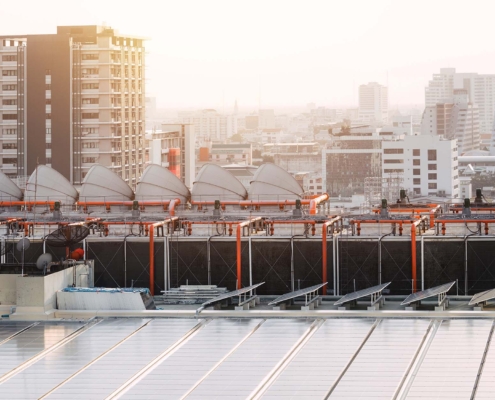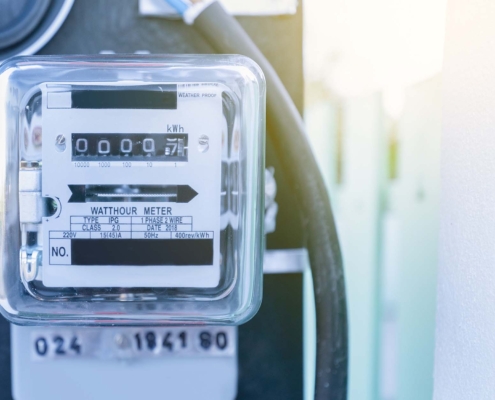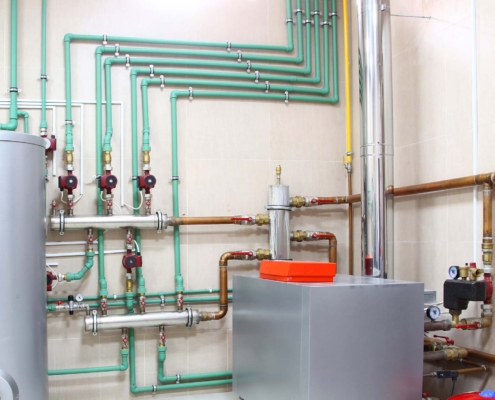 https://www.aircomfort.com/wp-content/uploads/2022/10/What-Is-IECC-and-How-Does-It-Affect-Your-Business__.jpg
1250
2000
Ike Oji
/wp-content/uploads/2021/08/AC_Logo_FIN_-wTag.png
Ike Oji2022-10-31 09:00:002023-04-27 15:24:16What is the IECC?
https://www.aircomfort.com/wp-content/uploads/2022/10/What-Is-IECC-and-How-Does-It-Affect-Your-Business__.jpg
1250
2000
Ike Oji
/wp-content/uploads/2021/08/AC_Logo_FIN_-wTag.png
Ike Oji2022-10-31 09:00:002023-04-27 15:24:16What is the IECC?R22 Phase Out: What You Need To Know
Since the late 70s, hydrochlorofluorocarbons (HCFCs), including the popular R22 blend, commonly known as freon, have been used as the primary refrigerant in commercial refrigeration and air conditioning units.
But during the 80s, researchers made findings that HCFCs were depleting the Earth’s ozone layer. A rogue chlorine atom is released when the compound is broken down in the atmosphere. This causes the damage to the ozone layer. This layer of oxygen high above the Earth’s surface is critical to protecting life on Earth from the sun’s harmful UV radiation. Without the protection of the ozone layer, diseases like skin cancer and cataracts caused by the UV radiation from the sun could become an epidemic.
Because of these findings, scientists, activists, and legislators began working to ban the use of HCFCs. In 1987, the Montreal Protocol banned HCFCs in several countries, including the United States.
98% of ozone-depleting substances were phased out of production and consumption, since the introduction of the Montreal Protocol. But certain ozone-depleting substances could continue in use for a limited period—including R22.
Over the decades, the demand for and reliance on R22 has been much higher than expected. Though several alternative refrigerants that cause no ozone depletion are available, the equipment using R22 are still the best sellers.
Although many companies may depend on R22 to fuel HVAC systems and refrigeration units, those companies will have to update their equipment eventually or potentially face fines.
What Can My Organization Do to Prepare?
- Do nothing. Wait until your system breaks down completely before replacing it. Your air conditioning may be able to hold out for a little while. However, this may mean being caught unaware if your air conditioning breaks during very hot weather.
- Convert your existing equipment. Depending on your system, you may be able to retrofit your air conditioning so that it can function with newer refrigerant. This is not possible for all systems. It’s best to have a professional take a look and make recommendations about whether yours can be converted, how much this would cost, and how long it would last before replacement is essential.
- Replace your system proactively. Investing in a newer A/C system now will mean more efficient cooling, which should save money in the long run. It also means your A/C probably won’t break down anytime soon. If something does go wrong with a newer system, an HVAC professional will be able to repair it using a modern refrigerant.
Trust Air Comfort And Get Ahead Of the Curve
Replacing or updating your HVAC equipment that uses R22 is a serious matter. Not only is it crucial to the environment, falling out of compliance could put you at risk of breaking the law and accruing costly fines. If your HVAC system needs retrofitting or replacement to prepare for the R22 phase out, reach out to the team at Air Comfort.
Air Comfort Corporation is a full-service industrial and commercial HVAC provider specializing in a complete range of products and services, including comprehensive year-round preventive maintenance programs and emergency service, as well as design/build installation of equipment for new construction, and retrofits of existing mechanical systems.
Related Postings
 https://www.aircomfort.com/wp-content/uploads/2022/10/What-Is-IECC-and-How-Does-It-Affect-Your-Business__.jpg
1250
2000
Ike Oji
/wp-content/uploads/2021/08/AC_Logo_FIN_-wTag.png
Ike Oji2022-10-31 09:00:002023-04-27 15:24:16What is the IECC?
https://www.aircomfort.com/wp-content/uploads/2022/10/What-Is-IECC-and-How-Does-It-Affect-Your-Business__.jpg
1250
2000
Ike Oji
/wp-content/uploads/2021/08/AC_Logo_FIN_-wTag.png
Ike Oji2022-10-31 09:00:002023-04-27 15:24:16What is the IECC? https://www.aircomfort.com/wp-content/uploads/2022/09/Electrical-equipment.energy-meter-is-a-device-that-measures-the-amount-of-electric-energy-consumed-by-a-residence.jpg
1250
2000
Valeriia Mamleeva
/wp-content/uploads/2021/08/AC_Logo_FIN_-wTag.png
Valeriia Mamleeva2022-09-22 09:00:052023-04-27 15:24:16How To Reduce Energy Use in Commercial Buildings
https://www.aircomfort.com/wp-content/uploads/2022/09/Electrical-equipment.energy-meter-is-a-device-that-measures-the-amount-of-electric-energy-consumed-by-a-residence.jpg
1250
2000
Valeriia Mamleeva
/wp-content/uploads/2021/08/AC_Logo_FIN_-wTag.png
Valeriia Mamleeva2022-09-22 09:00:052023-04-27 15:24:16How To Reduce Energy Use in Commercial Buildings https://www.aircomfort.com/wp-content/uploads/2022/09/boiler-room_.jpg
1250
2000
Valeriia Mamleeva
/wp-content/uploads/2021/08/AC_Logo_FIN_-wTag.png
Valeriia Mamleeva2022-09-15 09:00:372023-04-27 15:24:16How To Identify Common Boiler Problems
https://www.aircomfort.com/wp-content/uploads/2022/09/boiler-room_.jpg
1250
2000
Valeriia Mamleeva
/wp-content/uploads/2021/08/AC_Logo_FIN_-wTag.png
Valeriia Mamleeva2022-09-15 09:00:372023-04-27 15:24:16How To Identify Common Boiler Problems

About
Air Comfort’s mission is to work closely with customers to provide a true “comfort level” for their businesses, with uninterrupted performance and round-the-clock reliability.


